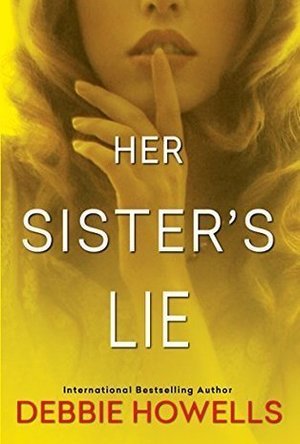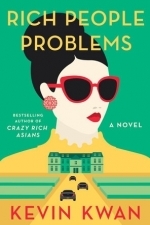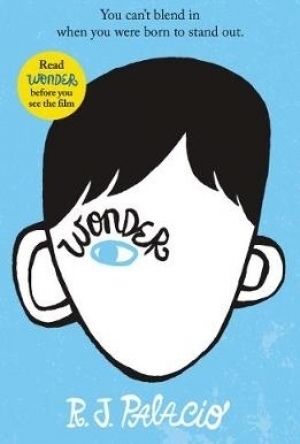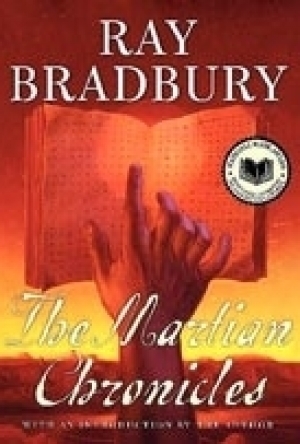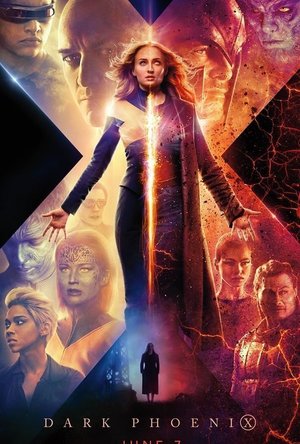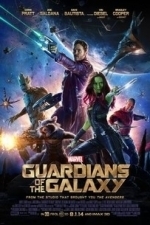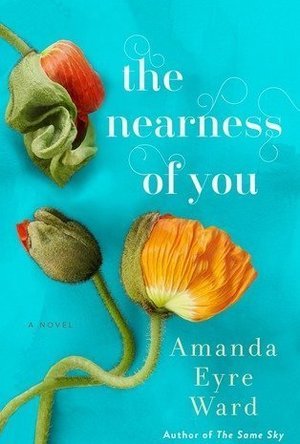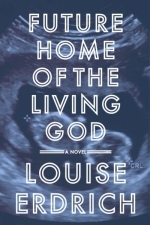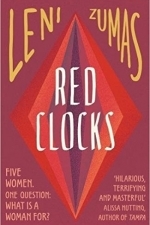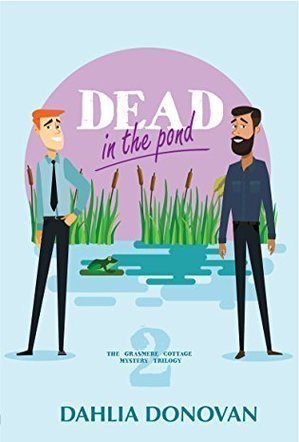Search
Search results
Kristy H (1252 KP) rated Her Sister's Lie in Books
Mar 11, 2019
Overall, this one is a mixed bag
Hannah Roscoe hasn't seen or spoken to her sister, Nina, in ten years when she receives the call that Nina is dead. The sisters have no other family, so Hannah is now guardian to her fifteen-year-old nephew, Abe, a sullen and angry boy whom she barely knows. Abe comes to live with Hannah, and soon they learn that the police are investigating Nina's death as suspicious. Simultaneously, Hannah begins experiencing strange, unexplained events that quickly have her questioning both her safety and her sanity. Nina's death seems to be close to exposing secrets she thought were buried forever. Is Hannah safe? And her secretive past?
"I... then stopped myself, pulled by the invisible thread that runs through all of us, that however much we might want to, none of us can ever truly disown. Family."
Well, this was an interesting, albeit frustrating one. I really love Debbie Howells' work and the fascinating stories she weaves. Her characters are always complex and often flawed, and there's no exception here. Hannah is a mess, honestly, and I won't lie, she's not the easiest to like. Truly, there aren't really any likeable characters here. Hannah is an unreliable narrator, which sometimes drives me a bit insane. However, the book does a strong job of making you wonder who to trust or believe and what exactly is going on. I was confused a good portion of the time. The weird, creepy things that happen to Hannah are interesting and crazy, though they sort of stressed me out. (Maybe I get too involved?)
The novel is filled with references of Hannah and Nina sticking to the script and keeping each other's secrets. At first, it's intriguing and you're curious as to what they are hiding. After a while, when Hannah makes yet *another* reference to the script and secrets--without any details being revealed--you sort of want to scream. I get a little frustrated at the lack of any reveal throughout the entire book. Eventually, I basically guessed all the major twists anyway, though I still found them clever.
So, overall, this one is a mixed bag. Unlikable characters, some frustrating plot pieces. Some clever plot twists, though I managed to predict most of them. It's a very quick read, however. My rating may be slightly affected by my overall love of Howells. If you've never read anything by her, I would definitely head to THE BONES OF YOU first.
I received a copy of this novel from the publisher and Netgalley in return for an unbiased review (thank you!).
"I... then stopped myself, pulled by the invisible thread that runs through all of us, that however much we might want to, none of us can ever truly disown. Family."
Well, this was an interesting, albeit frustrating one. I really love Debbie Howells' work and the fascinating stories she weaves. Her characters are always complex and often flawed, and there's no exception here. Hannah is a mess, honestly, and I won't lie, she's not the easiest to like. Truly, there aren't really any likeable characters here. Hannah is an unreliable narrator, which sometimes drives me a bit insane. However, the book does a strong job of making you wonder who to trust or believe and what exactly is going on. I was confused a good portion of the time. The weird, creepy things that happen to Hannah are interesting and crazy, though they sort of stressed me out. (Maybe I get too involved?)
The novel is filled with references of Hannah and Nina sticking to the script and keeping each other's secrets. At first, it's intriguing and you're curious as to what they are hiding. After a while, when Hannah makes yet *another* reference to the script and secrets--without any details being revealed--you sort of want to scream. I get a little frustrated at the lack of any reveal throughout the entire book. Eventually, I basically guessed all the major twists anyway, though I still found them clever.
So, overall, this one is a mixed bag. Unlikable characters, some frustrating plot pieces. Some clever plot twists, though I managed to predict most of them. It's a very quick read, however. My rating may be slightly affected by my overall love of Howells. If you've never read anything by her, I would definitely head to THE BONES OF YOU first.
I received a copy of this novel from the publisher and Netgalley in return for an unbiased review (thank you!).
Whatchareadin (174 KP) rated Rich People Problems in Books
Apr 9, 2019
In the third installment of the Crazy Rich Asians series, we find that the matriarch of the family, Su Yi Young is on her death bed and her relative will stop at nothing in order to get the most coveted prize of her estate, Tyersall Park. Tyersall Park is a sprawling compound that is the most valuable piece of real estate in all of Singapore. Will the family be able to put away their differences long enough to agree?
Thank you to NetGalley and Doubleday Books for the opportunity to read and review this book. Rich People Problems is a great way to start off my summer reading season. This book had me laughing out loud and desperate to find out how it was all going to end.
When this book starts, it has been three years, since Nick and Rachel have gotten married and they have not returned to Singapore since all of the crazy things Nick's family did to them while they were there, but Nick's Ah Ma might not make it much longer. He can't let his pride get in the way of seeing his grandmother before she leaves this earth. As he returns to Singapore, though he finds that getting to see her may not be as easy as he thought. His family is blocking him from seeing her. Since he is the only grandson with the Young name, it's only right that Tyersall Park should be his. But his cousins and Aunts have a different idea. Through trial and tribulation from each member of the family we finally get to see who Tyersall Park will belong too and who will get the rest of Su Yi Young's fortune. The same crazy characters are in this book up to their usual antics or trying on some new ones.
I have been entertained by all of the Crazy Rich Asian books, but this one had me laughing the loudest. It's amazing the things each individual will go through just to be the best or because of money or fame. There are always books with family rivalries and secrets, but none quite and unique and the Young family and their prosperous friends and relatives.
This is one series, that if you haven't started to read it, you have to jump on board. It's been a while since I have had a book make me laugh out loud while reading it. Kevin Kwan has made me want to learn more about this part of the Asian culture.
Thank you to NetGalley and Doubleday Books for the opportunity to read and review this book. Rich People Problems is a great way to start off my summer reading season. This book had me laughing out loud and desperate to find out how it was all going to end.
When this book starts, it has been three years, since Nick and Rachel have gotten married and they have not returned to Singapore since all of the crazy things Nick's family did to them while they were there, but Nick's Ah Ma might not make it much longer. He can't let his pride get in the way of seeing his grandmother before she leaves this earth. As he returns to Singapore, though he finds that getting to see her may not be as easy as he thought. His family is blocking him from seeing her. Since he is the only grandson with the Young name, it's only right that Tyersall Park should be his. But his cousins and Aunts have a different idea. Through trial and tribulation from each member of the family we finally get to see who Tyersall Park will belong too and who will get the rest of Su Yi Young's fortune. The same crazy characters are in this book up to their usual antics or trying on some new ones.
I have been entertained by all of the Crazy Rich Asian books, but this one had me laughing the loudest. It's amazing the things each individual will go through just to be the best or because of money or fame. There are always books with family rivalries and secrets, but none quite and unique and the Young family and their prosperous friends and relatives.
This is one series, that if you haven't started to read it, you have to jump on board. It's been a while since I have had a book make me laugh out loud while reading it. Kevin Kwan has made me want to learn more about this part of the Asian culture.
Whatchareadin (174 KP) rated Wonder in Books
Apr 9, 2019
August Pullman is not your typical 10 year old. He has never been to school, he has had countless surgeries, and he has a rare facial deformity. But despite all of that, his outlook on life is very positive. This year, Auggie, as he likes to be called, and his family have decided it is time for him to go to school. He has been homeschooled all of this time because of the countless doctor's appointments and medical tests he had to do that it wasn't practical. But he's finally reached the stage of his life where none of that is necessary. Of course, he and his parents are a little skeptical about how this will all play out. How will the other children treat him and will he be able to make new friends?
I have had this book on my TBR for a while. When I saw that the movie was coming out, I pushed it closer to the top. My daughter, who is also 10 was very interested in seeing this movie as well. I told her we had to read the book first. So we read it together. I love that we both have this passion for reading and that we can talk about this book together and then enjoy the movie.
This book brought me to tears several times. First of all, the way they describe Auggie in the book is horrible. His ears look like cauliflower, his eyes come too far down, his cheeks look punched in, his mouth is like a turtle. When he is first introduced to school, Mr. Tushman has a few kids show him around the school. Only one, Jack, seems like a really good kid.
The book follows Auggie and his family and friends through his first year at school, Beecher Prep. The book is mostly told from Auggie's point of view, but also there is a section for his sister Olivia(Via); the first person to sit with him at lunch, Summer; Jack, one of the first people Auggie meets at the school; Justin, a friend of Olivia's; and Miranda, another friend of Olivia's who gave Auggie a special gift one time that he cherished.
This book will touch your heart and soul and it shows you the importance of treating people as you would like to be treated despite what they may look like.
I can't wait for my daughter to finish the book so we can go and see the movie together. Although I'm already having some issues seeing as the book describes Auggie's mom as a Brazilian and Julia Roberts is not...
I have had this book on my TBR for a while. When I saw that the movie was coming out, I pushed it closer to the top. My daughter, who is also 10 was very interested in seeing this movie as well. I told her we had to read the book first. So we read it together. I love that we both have this passion for reading and that we can talk about this book together and then enjoy the movie.
This book brought me to tears several times. First of all, the way they describe Auggie in the book is horrible. His ears look like cauliflower, his eyes come too far down, his cheeks look punched in, his mouth is like a turtle. When he is first introduced to school, Mr. Tushman has a few kids show him around the school. Only one, Jack, seems like a really good kid.
The book follows Auggie and his family and friends through his first year at school, Beecher Prep. The book is mostly told from Auggie's point of view, but also there is a section for his sister Olivia(Via); the first person to sit with him at lunch, Summer; Jack, one of the first people Auggie meets at the school; Justin, a friend of Olivia's; and Miranda, another friend of Olivia's who gave Auggie a special gift one time that he cherished.
This book will touch your heart and soul and it shows you the importance of treating people as you would like to be treated despite what they may look like.
I can't wait for my daughter to finish the book so we can go and see the movie together. Although I'm already having some issues seeing as the book describes Auggie's mom as a Brazilian and Julia Roberts is not...
Ande Thomas (69 KP) rated The Martian Chronicles in Books
May 30, 2019
I have some feelings about Ray Bradbury.
I understand why he is so well loved. I understand his importance in literature and in science fiction. I just don't like reading him. It's something I can't fully explain. I generally enjoy his stories and his ideas. He paints a beautiful portrait with his words, relying as much on the landscape as he does his characters, which I am normally really into. I like being able to peek into the social structure of the early days of science fiction to see how people envisioned the future and by extension, how they saw themselves. For some unknown reason though, I can never get myself settled and engrossed in a Bradbury story.
The Martian Chronicles has some highlights, to be sure. Favorites include <i>The Earth Men</i>, <i>Way in the Middle of the Air</i> and <i>Usher II</i> come immediately to mind. As simply a collection of short stories, I think I would like it more, but since he decided to thread them loosely together, it causes more trouble than it gains. Because of the nature of the narrative, we get a sort of dreamlike quality to the story. Rules that work in one story may not work in the next. The image of martian life that we are treated to seems a bit arbitrary and dependent on the tale that surrounds it at any given moment. And that's fine! It makes sense given that they were different stories published at different times. But there's nothing that really pulls them together into a cohesive unit.
The characters can at times, be a bit infuriating. The naivety and undisciplined behavior of many of the explorers irked me. <i>The Earth Men,</i> despite being one of my favorite stories, is the most egregious offender. An expedition to a new planet, especially one immediately after a failed one in which everyone died, is upset that none of the natives are thrilled with their presence? Their first and only concern is finding pats on the back? The redeeming factor in this story is the conclusion, which I find justified and well deserved. Maybe Mr. Xxx is right. (Which leads me to my frustration with Martian naming conventions throughout the various stories, but that's neither here nor there.)
Despite my grievances, I still appreciate the lofty ideas Bradbury puts forth and the perspective he brings. Maybe I'm too heavy into modern, harder SF to find solace in the whimsical worlds he presents here. I know it has it's place, that place just isn't with me.
I understand why he is so well loved. I understand his importance in literature and in science fiction. I just don't like reading him. It's something I can't fully explain. I generally enjoy his stories and his ideas. He paints a beautiful portrait with his words, relying as much on the landscape as he does his characters, which I am normally really into. I like being able to peek into the social structure of the early days of science fiction to see how people envisioned the future and by extension, how they saw themselves. For some unknown reason though, I can never get myself settled and engrossed in a Bradbury story.
The Martian Chronicles has some highlights, to be sure. Favorites include <i>The Earth Men</i>, <i>Way in the Middle of the Air</i> and <i>Usher II</i> come immediately to mind. As simply a collection of short stories, I think I would like it more, but since he decided to thread them loosely together, it causes more trouble than it gains. Because of the nature of the narrative, we get a sort of dreamlike quality to the story. Rules that work in one story may not work in the next. The image of martian life that we are treated to seems a bit arbitrary and dependent on the tale that surrounds it at any given moment. And that's fine! It makes sense given that they were different stories published at different times. But there's nothing that really pulls them together into a cohesive unit.
The characters can at times, be a bit infuriating. The naivety and undisciplined behavior of many of the explorers irked me. <i>The Earth Men,</i> despite being one of my favorite stories, is the most egregious offender. An expedition to a new planet, especially one immediately after a failed one in which everyone died, is upset that none of the natives are thrilled with their presence? Their first and only concern is finding pats on the back? The redeeming factor in this story is the conclusion, which I find justified and well deserved. Maybe Mr. Xxx is right. (Which leads me to my frustration with Martian naming conventions throughout the various stories, but that's neither here nor there.)
Despite my grievances, I still appreciate the lofty ideas Bradbury puts forth and the perspective he brings. Maybe I'm too heavy into modern, harder SF to find solace in the whimsical worlds he presents here. I know it has it's place, that place just isn't with me.
James P. Sumner (65 KP) rated X-Men: Dark Phoenix (2019) in Movies
Jun 5, 2019
A poor end to a great series.
With the much-publicised sale of the Fox-owned Marvel properties to Disney, we knew going into this film it would be the last of its series. The three entries that came before breathed life into a tired franchise, and were all must-see blockbusters.
Sadly, Dark Phoenix doesn't live up to the quality of its predecessors.
It reminded me in a lot of ways of Christopher Nolan's "Dark Knight Rises". It was the end of something special... we had been promised stakes that had never been higher... we expected sadness... we expected fireworks. We expected a big finish.
Unfortunately, Dark Phoenix failed where Dark Knight Rises succeeded, and that was the payoff. The film seemed to be over just as it was getting started. A strong beginning with tension and danger promised more of the same, but it never quite got there. Visually, yes, you could see the build-up, see what was at stake... but you couldn't feel it. I found myself not caring what happened to the characters, which was a real shame.
The film just didn't feel... big enough for what it was trying to do.
We know from the trailers that an early mission into space ends with Jean Grey absorbing a cosmic energy known in the comics as the Phoenix Force. This whole thing felt very watered down compared to the source material, probably because for the entire time, none of the X-Men actually knew what they were dealing with. Just that Jean was angry and, well, you wouldn't like her when she's angry.
The bulk of the story revolves around the heroes trying to save their friend, but even they don't know from what they're trying to save her from. The CGI is well done, and isn't over-used. Some of the character arcs are intriguing to a point, although they lack the depth they needed to really make you care.
Without spoilers, the ending is satisfactory. It's very Dark Knight Rises in some ways, actually. A fitting end to the film, but only because the film itself was below par. The X-Men series that began with First Class deserved so much more.
If you've seen the other three, there's an obligation to say goodbye to the current iteration of these characters. But if you're just after a typical popcorn movie, I'm sad to say you could do much, much better than this.
(Oh, and there's no mid- or post-credits scene, so no need to sit through them.)
Sadly, Dark Phoenix doesn't live up to the quality of its predecessors.
It reminded me in a lot of ways of Christopher Nolan's "Dark Knight Rises". It was the end of something special... we had been promised stakes that had never been higher... we expected sadness... we expected fireworks. We expected a big finish.
Unfortunately, Dark Phoenix failed where Dark Knight Rises succeeded, and that was the payoff. The film seemed to be over just as it was getting started. A strong beginning with tension and danger promised more of the same, but it never quite got there. Visually, yes, you could see the build-up, see what was at stake... but you couldn't feel it. I found myself not caring what happened to the characters, which was a real shame.
The film just didn't feel... big enough for what it was trying to do.
We know from the trailers that an early mission into space ends with Jean Grey absorbing a cosmic energy known in the comics as the Phoenix Force. This whole thing felt very watered down compared to the source material, probably because for the entire time, none of the X-Men actually knew what they were dealing with. Just that Jean was angry and, well, you wouldn't like her when she's angry.
The bulk of the story revolves around the heroes trying to save their friend, but even they don't know from what they're trying to save her from. The CGI is well done, and isn't over-used. Some of the character arcs are intriguing to a point, although they lack the depth they needed to really make you care.
Without spoilers, the ending is satisfactory. It's very Dark Knight Rises in some ways, actually. A fitting end to the film, but only because the film itself was below par. The X-Men series that began with First Class deserved so much more.
If you've seen the other three, there's an obligation to say goodbye to the current iteration of these characters. But if you're just after a typical popcorn movie, I'm sad to say you could do much, much better than this.
(Oh, and there's no mid- or post-credits scene, so no need to sit through them.)
Darkwriter1408 (8 KP) rated Guardians of the Galaxy (2014) in Movies
Jun 13, 2019
Funny (2 more)
Good acting
Good diversity
Amazing! Brilliant! Funny
Contains spoilers, click to show
So if you haven't seen the film then go watch it and then come back and read this review! I am about to go in depth!.. GO NOW!!
Right, so the film centres on peter quill who is a earth boy abducted by an alien race, initially you don't know what for *SPOILER* (it gets revealed in GOTG2) that he was abducted for his father but let's not get in to that.
So, Peter is abducted by the alien race and developed into a thief, he's sent to retrieve this orb that he knows nothing about and is to deliver it to ronin... if your familiar with the comics you'll know all about him. He's big, ugly, strong and quite frankly the evil guy.
Peter is meant to take the orb to yondu for him to deliver it. However after taking a little bit of a detour to another planet, Peter finds himself in a 3-way battle with Gamora, rocket and groot. Gamora is there for the orb and rocket and groot are there for gamora and Peter.
All this being said, they end up in a pretty public fight and end up being sent to jail. This is where the film starts to build it's character, they are put in a maximum security stronghold where Drax is. More on him in a moment. The character building in these scenes are quite intense and you really see gamora for who she is..
Drax, right Drax is also seen as the destroyer because Ronin destroyed his planet and family and Drax has held a vengeance for the entirety of his time. Seeing gamora and knowing she is associated with ronin is enough for him to want to kill her. This is where his character starts his arc. After speaking to peter, he decides to join them anf see where he can go.
Following the stronghold scene, they eventually come against ronin after taking a mahoosive detour.
Coming to the end of the film you have been through intense laughter, even bits of sadness but you'll understand all of there standings and why they do what they do. The visual effects are brilliant and second to none and the action and comedy within is also amazing. Then we get to the performances of the cast, these really bring the film together and show the versatility of some of the actors.
Now even without my biased opinion onnthis film it is definitely a family friends amazing film you should definitely watch!!!
Right, so the film centres on peter quill who is a earth boy abducted by an alien race, initially you don't know what for *SPOILER* (it gets revealed in GOTG2) that he was abducted for his father but let's not get in to that.
So, Peter is abducted by the alien race and developed into a thief, he's sent to retrieve this orb that he knows nothing about and is to deliver it to ronin... if your familiar with the comics you'll know all about him. He's big, ugly, strong and quite frankly the evil guy.
Peter is meant to take the orb to yondu for him to deliver it. However after taking a little bit of a detour to another planet, Peter finds himself in a 3-way battle with Gamora, rocket and groot. Gamora is there for the orb and rocket and groot are there for gamora and Peter.
All this being said, they end up in a pretty public fight and end up being sent to jail. This is where the film starts to build it's character, they are put in a maximum security stronghold where Drax is. More on him in a moment. The character building in these scenes are quite intense and you really see gamora for who she is..
Drax, right Drax is also seen as the destroyer because Ronin destroyed his planet and family and Drax has held a vengeance for the entirety of his time. Seeing gamora and knowing she is associated with ronin is enough for him to want to kill her. This is where his character starts his arc. After speaking to peter, he decides to join them anf see where he can go.
Following the stronghold scene, they eventually come against ronin after taking a mahoosive detour.
Coming to the end of the film you have been through intense laughter, even bits of sadness but you'll understand all of there standings and why they do what they do. The visual effects are brilliant and second to none and the action and comedy within is also amazing. Then we get to the performances of the cast, these really bring the film together and show the versatility of some of the actors.
Now even without my biased opinion onnthis film it is definitely a family friends amazing film you should definitely watch!!!
Kristy H (1252 KP) rated The Nearness of You in Books
Feb 13, 2018
Suzette and Hyland have a happy marriage and a busy life when Hyland surprises his wife with the news that he really wants a child. Married fifteen years, children had always been off the table, as Suzette did not want to pass on the genes of her mother, a woman who gave Suzette a horrifying and unstable childhood and eventually wound up in a mental institution. But Hyland proposes a new solution: what if they use a surrogate, with his sperm and a surrogate's egg? Suzette, a busy and successful heart surgeon, reluctantly agrees. Even though there are some red flags, the couple eventually chooses young Dorrie, a woman who wants to use the surrogate fees to go to college. Dorrie and Hyland bond, and Suzette realizes she must get on board with the idea. But soon Dorrie will make some decisions that will affect everyone in this new trio.
I am a bit conflicted about this novel. Ward wrote [book:The Same Sky|22716408], which is a beautiful novel and one everyone should read in this current political climate. It's hard not to compare others to that magical book, and this one did fall short. She does, however, have a way of weaving stories with her words, and while I wasn't nearly as attached to the characters in this novel, I still found myself reading the last half of the book somewhat compulsively.
The novel started out slow, but picked up about 1/4 through, with a twist in the plot. It's told from a shifting rotation of perspectives, including Suzette, Dorrie, and Hyland. There are some large shifts in time as the novel progresses, which did make it harder to attach to some of the characters. None of the plot twists are exactly surprise, as they are foreshadowed a bit in each character's description: this is more of a character-driven novel versus a shocking dramatic novel. Still, even though I tore through the last half of the novel, I just felt the book lacked something, and I felt a tad let down by a story and characters that weren't completely fully developed (the ending is a bit abrupt as well). I enjoyed the perspectives on motherhood that the novel offered, but felt there could be more. That's not to say the novel isn't worth reading; Ward is a wonderful writer, but I just felt a little perplexed and frustrated when this one ended. I had hoped for more.
I received a copy of this novel from the publisher and Netgalley (thank you!); it is available everywhere as of 02/21/2017.
I am a bit conflicted about this novel. Ward wrote [book:The Same Sky|22716408], which is a beautiful novel and one everyone should read in this current political climate. It's hard not to compare others to that magical book, and this one did fall short. She does, however, have a way of weaving stories with her words, and while I wasn't nearly as attached to the characters in this novel, I still found myself reading the last half of the book somewhat compulsively.
The novel started out slow, but picked up about 1/4 through, with a twist in the plot. It's told from a shifting rotation of perspectives, including Suzette, Dorrie, and Hyland. There are some large shifts in time as the novel progresses, which did make it harder to attach to some of the characters. None of the plot twists are exactly surprise, as they are foreshadowed a bit in each character's description: this is more of a character-driven novel versus a shocking dramatic novel. Still, even though I tore through the last half of the novel, I just felt the book lacked something, and I felt a tad let down by a story and characters that weren't completely fully developed (the ending is a bit abrupt as well). I enjoyed the perspectives on motherhood that the novel offered, but felt there could be more. That's not to say the novel isn't worth reading; Ward is a wonderful writer, but I just felt a little perplexed and frustrated when this one ended. I had hoped for more.
I received a copy of this novel from the publisher and Netgalley (thank you!); it is available everywhere as of 02/21/2017.
Goddess in the Stacks (553 KP) rated Future Home of the Living God in Books
Mar 25, 2018
Minority Representation (1 more)
Interesting premise
NO ANSWERS (1 more)
No resolution
Well that was a waste of time. This book spends its entire length asking one real question. Will the main character's baby survive? There are a number of smaller questions - Will the baby be born normal? Why is evolution turning backwards, or sideways? What happened to the main character's father? What happened to her friend from the hospital? What happened to her husband? Does she ever find freedom?
THE BOOK ANSWERS NONE OF THESE QUESTIONS.
I am really frustrated with this book. Why did I bother reading it if it refuses to resolve any of its plotlines?
We're going to get a little bit into writing theory here. It has been a classic recommendation to have the climax of your book 2/3 of the way through the book, and have the last third be denouement. Wrap-up. Show us how the climax affected the characters and the world. John Green does this well - all his books follow a standard plot line. Character A is introduced. A meets B. B changes A's life. B leaves A's life. (Those last two are usually incorporated in the climax of the book.) A has to learn how to live without B in a world changed by B's existence in it. It's a little formulaic, but it works for Green, and his books are great. Some books do not do this so well. Wheel of Time had 5-6 pages of denouement after the series climax, and nothing was really revealed about how the events changed the world for the better. Future Home of the Living God had TWO. TWO PAGES AFTER THE CLIMAX. AND THEY ANSWER NOTHING. The main character talks about missing winter.
I finished the book and almost threw it across the room. I probably would have, except for two things: I was at a friend's house, and it was a library book. That's all that saved it from that fate. I have stacks of books I want to read, and I feel like I just wasted a few hours on this piece of crap.
The writing was actually pretty good, and the main character is an Ojibwe Indian, so there's minority representation, but the book as a whole was just CRAP. Wrap up your plotlines. Answer the questions you ask. (At least the ones having to do with your plot - you can leave unanswered philosophical questions, that's fine.)
Hard pass on this book.
You can find all my reviews at http://goddessinthestacks.wordpress.com
THE BOOK ANSWERS NONE OF THESE QUESTIONS.
I am really frustrated with this book. Why did I bother reading it if it refuses to resolve any of its plotlines?
We're going to get a little bit into writing theory here. It has been a classic recommendation to have the climax of your book 2/3 of the way through the book, and have the last third be denouement. Wrap-up. Show us how the climax affected the characters and the world. John Green does this well - all his books follow a standard plot line. Character A is introduced. A meets B. B changes A's life. B leaves A's life. (Those last two are usually incorporated in the climax of the book.) A has to learn how to live without B in a world changed by B's existence in it. It's a little formulaic, but it works for Green, and his books are great. Some books do not do this so well. Wheel of Time had 5-6 pages of denouement after the series climax, and nothing was really revealed about how the events changed the world for the better. Future Home of the Living God had TWO. TWO PAGES AFTER THE CLIMAX. AND THEY ANSWER NOTHING. The main character talks about missing winter.
I finished the book and almost threw it across the room. I probably would have, except for two things: I was at a friend's house, and it was a library book. That's all that saved it from that fate. I have stacks of books I want to read, and I feel like I just wasted a few hours on this piece of crap.
The writing was actually pretty good, and the main character is an Ojibwe Indian, so there's minority representation, but the book as a whole was just CRAP. Wrap up your plotlines. Answer the questions you ask. (At least the ones having to do with your plot - you can leave unanswered philosophical questions, that's fine.)
Hard pass on this book.
You can find all my reviews at http://goddessinthestacks.wordpress.com
Goddess in the Stacks (553 KP) rated Red Clocks in Books
Jul 31, 2018
Red Clocks first caught my attention because it's set in a small fishing town in Oregon, my home state. After that, learning that it's a dystopia where abortion and in vitro fertilization have both been banned outright meant I HAD to read it. Of course, I got it from the library some weeks ago and had so many other books to read that I didn't get to it until the day it was due back to the library! Luckily, I read fast!
I think the cover description oversells the book a little. I wouldn't call Gin's trial "frenzied" nor the drama exactly "riveting" but it did keep my attention throughout the book. I really enjoyed the relationships between the characters, and the point that none of them really know what is going on in each other's personal lives. One moment I particularly liked is slightly spoilery, but I loved how Ro was able to put her personal feelings aside to help Mattie, her student. That was really, really hard for her, but she recognized how much damage it would do to Mattie to not help her.
I think I found Gin the most interesting - given all the reading I've been doing lately about autism, her entire personality screams autism to me, but she was never labeled as autistic. So I'm marking her as a possibly autistic character. (I'd love if any of my autistic readers could weigh in on that, if you've read the book!) Between preferring to live in the woods with animals and NOT around people, specifically, and the way she reacts to the textures and smells in the jail when she's arrested (shoving the bleach-scented blankets as far away in the cell as possible, and refusing to eat the food), and how she stumbles over her answers in the courtroom when she's interrogated - it seems likely.
My only actual complaint about this book had nothing to do with the writing or plot! But it refers to the ghost pepper as "the hottest pepper known to man" which the Carolina Reaper growing in my backyard would have an issue with!
Other than that very minor quibble, I thought this dystopia was pretty good. I'm always interested in Reproductive Rights-related dystopias. This isn't as good as The Handmaid's Tale, but it's MILES better than Future Home of the Living God. It's good at showing the lengths women will go to, to ensure their own reproductive freedom. Outlawing abortion doesn't eliminate abortion. It just makes it less safe.
You can find all my reviews at http://goddessinthestacks.wordpress.com
I think the cover description oversells the book a little. I wouldn't call Gin's trial "frenzied" nor the drama exactly "riveting" but it did keep my attention throughout the book. I really enjoyed the relationships between the characters, and the point that none of them really know what is going on in each other's personal lives. One moment I particularly liked is slightly spoilery, but I loved how Ro was able to put her personal feelings aside to help Mattie, her student. That was really, really hard for her, but she recognized how much damage it would do to Mattie to not help her.
I think I found Gin the most interesting - given all the reading I've been doing lately about autism, her entire personality screams autism to me, but she was never labeled as autistic. So I'm marking her as a possibly autistic character. (I'd love if any of my autistic readers could weigh in on that, if you've read the book!) Between preferring to live in the woods with animals and NOT around people, specifically, and the way she reacts to the textures and smells in the jail when she's arrested (shoving the bleach-scented blankets as far away in the cell as possible, and refusing to eat the food), and how she stumbles over her answers in the courtroom when she's interrogated - it seems likely.
My only actual complaint about this book had nothing to do with the writing or plot! But it refers to the ghost pepper as "the hottest pepper known to man" which the Carolina Reaper growing in my backyard would have an issue with!
Other than that very minor quibble, I thought this dystopia was pretty good. I'm always interested in Reproductive Rights-related dystopias. This isn't as good as The Handmaid's Tale, but it's MILES better than Future Home of the Living God. It's good at showing the lengths women will go to, to ensure their own reproductive freedom. Outlawing abortion doesn't eliminate abortion. It just makes it less safe.
You can find all my reviews at http://goddessinthestacks.wordpress.com
Debbiereadsbook (1650 KP) rated Dead In The Pond (Grasmere Trilogy #2) in Books
Oct 18, 2018
i love Bishan!
This is book two in the Grasmere Cottage Mystery Trilogy, and you MUST read book one, Dead In The Garden, before you read this one. They are NOT stand alones and they follow on.
Bishan, now out of jail, and Valor still have no idea who is killing, and why Bish and Valor have been singled out. Then another body is discovered, and Valor's worst nightmare comes true. Bish tries, he really does, but he just wants things to go back to the way they were, before.
Bishan has his say here, and just Bishan. He is Autistic, and his minds does go off at tangents all over the place, and he does take some following.
But I'm so bloody glad he gets his voice here!!
The guys are trying to piece together who might be doing this, and getting nowhere. Neither are the police. Things seem to calm down, then Bish and Valor are in a car accident that appears to be anything but. Didn't expect that particular person to stoop quite so low, but when HE turns up dead, and Valor is faced with having to deal with the family who disowned him so long ago. Bish struggles with that, but knows it's gotta be done.
Bish's mind wanders all over the place, but always seems to come back to the point at hand, he just goes the long way round. You have to concentrate, pat attention and keep up! For ME?? That's a really good thing! Being a speed reader at the best of times, if I've gotta slow down, it's the sign of a great book.
There is almost two plot lines going on here: the murders, and whatever is happening with Valor's family and just WHY they are so desperate to bring him back to London, away from Bish. But Valor won't go, not without Bishan. He LOVES Bishan, I loved the scene where they decide to definitely NOT get married! The love these two have for each other comes across every time Valor reaches for Bish and is rewarded with their joined hands, every time Bish makes tea for Valor, in every single thing they do for each other.
I fell in love with Bishan here, and his mum!
I'm still none the wiser as to whodunnit or why, but it's great that I'm being kept on my toes!
OH!!! Massive cliffhanger here! There was one for book one, but here's is far bigger!
Since Bishan has such an interesting voice
5 full stars
**same worded review will appear elsewhere**
Bishan, now out of jail, and Valor still have no idea who is killing, and why Bish and Valor have been singled out. Then another body is discovered, and Valor's worst nightmare comes true. Bish tries, he really does, but he just wants things to go back to the way they were, before.
Bishan has his say here, and just Bishan. He is Autistic, and his minds does go off at tangents all over the place, and he does take some following.
But I'm so bloody glad he gets his voice here!!
The guys are trying to piece together who might be doing this, and getting nowhere. Neither are the police. Things seem to calm down, then Bish and Valor are in a car accident that appears to be anything but. Didn't expect that particular person to stoop quite so low, but when HE turns up dead, and Valor is faced with having to deal with the family who disowned him so long ago. Bish struggles with that, but knows it's gotta be done.
Bish's mind wanders all over the place, but always seems to come back to the point at hand, he just goes the long way round. You have to concentrate, pat attention and keep up! For ME?? That's a really good thing! Being a speed reader at the best of times, if I've gotta slow down, it's the sign of a great book.
There is almost two plot lines going on here: the murders, and whatever is happening with Valor's family and just WHY they are so desperate to bring him back to London, away from Bish. But Valor won't go, not without Bishan. He LOVES Bishan, I loved the scene where they decide to definitely NOT get married! The love these two have for each other comes across every time Valor reaches for Bish and is rewarded with their joined hands, every time Bish makes tea for Valor, in every single thing they do for each other.
I fell in love with Bishan here, and his mum!
I'm still none the wiser as to whodunnit or why, but it's great that I'm being kept on my toes!
OH!!! Massive cliffhanger here! There was one for book one, but here's is far bigger!
Since Bishan has such an interesting voice
5 full stars
**same worded review will appear elsewhere**
